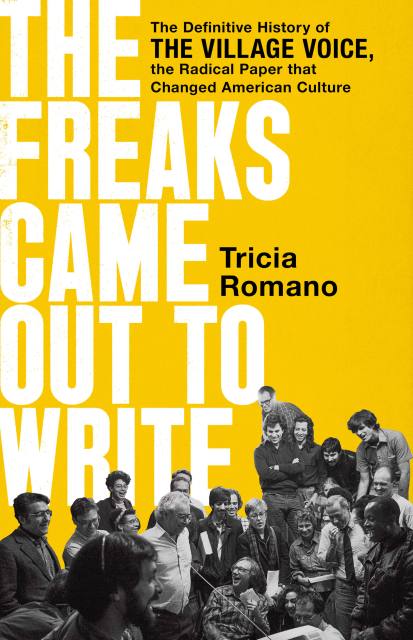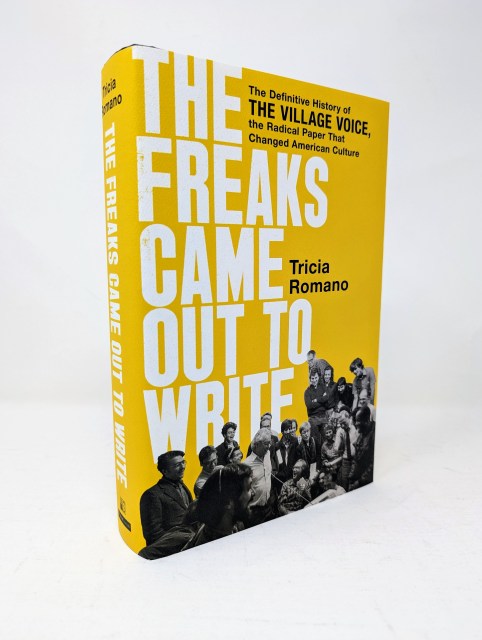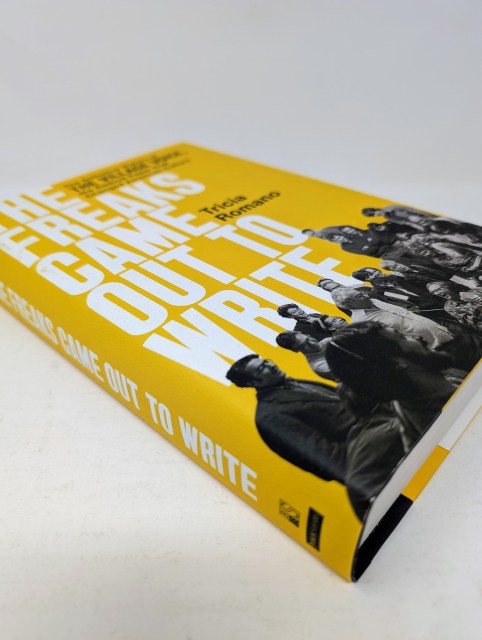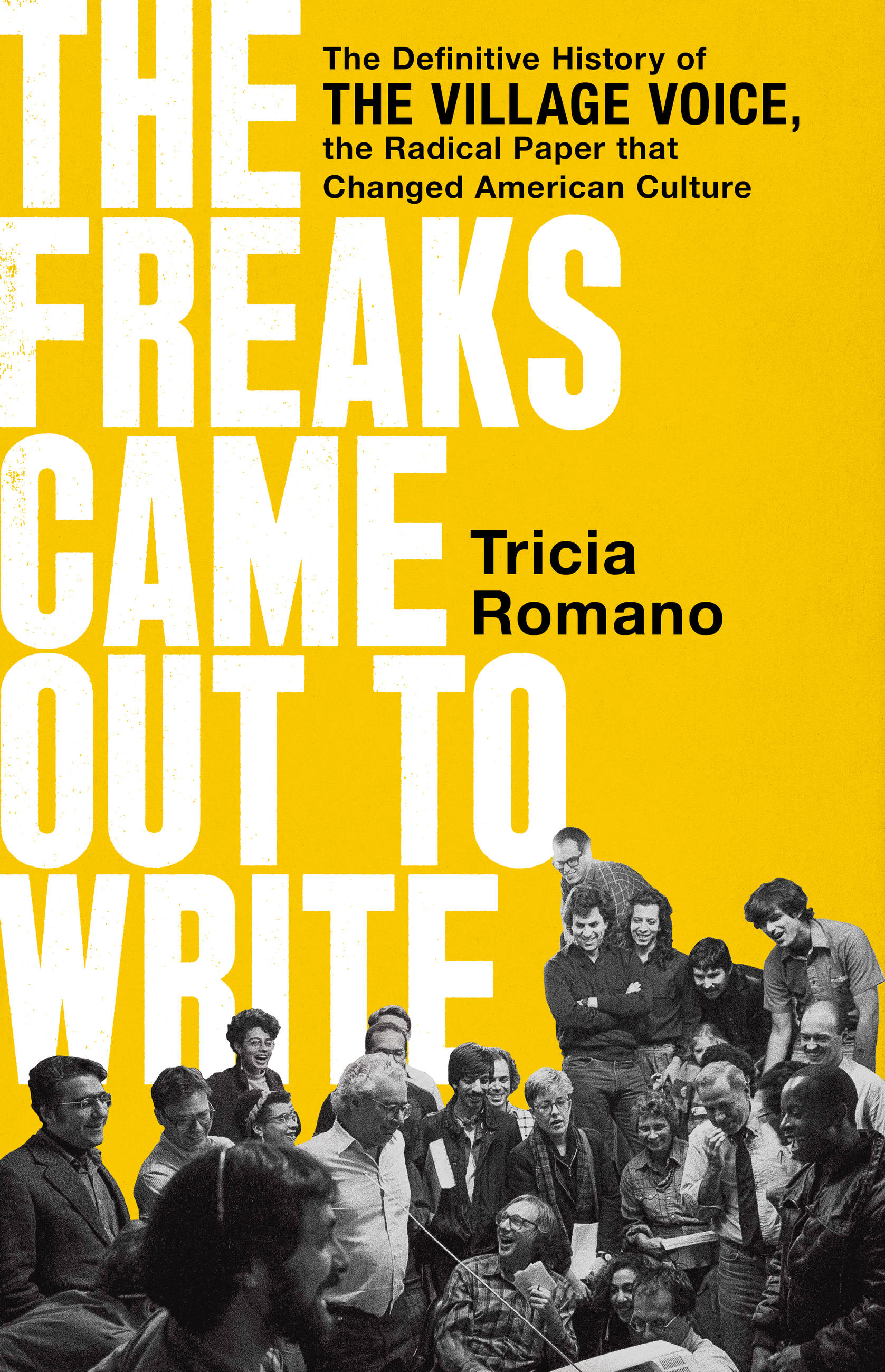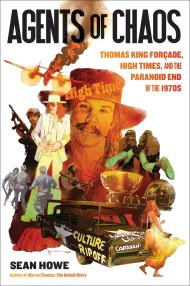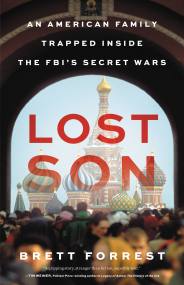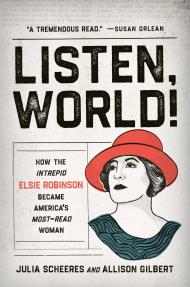By clicking “Accept,” you agree to the use of cookies and similar technologies on your device as set forth in our Cookie Policy and our Privacy Policy. Please note that certain cookies are essential for this website to function properly and do not require user consent to be deployed.
The Freaks Came Out to Write
The Definitive History of the Village Voice, the Radical Paper That Changed American Culture
Contributors
Formats and Prices
Price
$35.00Price
$45.00 CADFormat
Format:
- Hardcover $35.00 $45.00 CAD
- ebook $19.99 $25.99 CAD
- Audiobook Download (Unabridged) $31.99
This item is a preorder. Your payment method will be charged immediately, and the product is expected to ship on or around February 27, 2024. This date is subject to change due to shipping delays beyond our control.
Also available from:
You either were there or you wanted to be. A defining New York City institution co-founded by Norman Mailer, The Village Voice was the first newspaper to cover hip-hop, the avant-garde art scene, and Off-Broadway with gravitas. It reported on the AIDS crisis with urgency and seriousness when other papers dismissed it as a gay disease. In 1979, the Voice’s Wayne Barrett uncovered Donald Trump as a corrupt con artist before anyone else was paying attention. It invented new forms of criticism and storytelling and revolutionized journalism, spawning hundreds of copycats.
With more than 200 interviews, including two-time Pulitzer Prize winner, Colson Whitehead, cultural critic Greg Tate, gossip columnist Michael Musto, and feminist writers Vivian Gornick and Susan Brownmiller, former Voice writer Tricia Romano pays homage to the paper that saved NYC landmarks from destruction and exposed corrupt landlords and judges. With interviews featuring post-punk band, Blondie, sportscaster Bob Costas, and drummer Max Weinberg, of Bruce Springsteen’s E Street Band, in this definitive oral history, Romano tells the story of journalism, New York City and American culture—and the most famous alt-weekly of all time.
-
“[A] well-made disco ball of a book — it’s big, discursive, ardent, intellectual and flecked with gossip. “The Freaks Came Out to Write” may be the best history of a journalistic enterprise I’ve ever read.”Dwight Garner, The New York Times
-
“The Voice was the living center of the marginal, the weird, the rebellious. In the space and time of reading this wild ride of a book, I returned to that creative, crazy margin, and I think many other readers will, too.”Maureen Corrigan, NPR’s “Fresh Air”
-
“[The Freaks Came Out to Write] reads like a night at a gossipy media party. Author Tricia Romano, a former Voice nightlife reporter, is the ideal guide through the gathering.”The Washington Post
-
“[A]n animated tour of a shifting cultural landscape from critics who themselves shifted the landscape.”The Boston Globe
-
"What The Freaks Came Out to Write really captures is the serious collegiality of a newspaper, the alchemy that happens when a group of people attempt to record the world, together."The Financial Times
-
“The Freaks Came Out to Write is a rueful elegy for rawer, cheaper, better days.”The Guardian
-
“[A] lively history of the pioneering alt-weekly.”New York Post
-
“[A] triumph of contemporary journalism.”Village Voice
-
“Romano debuts with a phenomenal oral history….Brimming with riveting anecdotes and capturing its subject’s rollicking spirit, this is a remarkable portrait of the “nation’s first alternative newspaper.”Publishers Weekly
-
“Some writers give voice to the voiceless. Romano gives voice to the Voice. For more than six decades, the Village Voice not only had its finger on the pulse of New York, but quickened that pulse with its cultural criticism, investigative reporting, columns, cartoons, and more. I love this book!”Questlove
-
“A brilliant oral history that chronicles not only the Village Voice, the most important alt-weekly of our time, but also the history of New York City during the latter half of the 20th Century. One of the best narrative oral histories I have ever read—seamlessly edited, with anarchy on almost every page.”Gillian McCain, co-author of Please Kill Me: The Uncensored Oral History of Punk
-
“An uncensored look at the freewheeling, kaleidoscope lives of the people who wrote for the Voice. This book is essential reading for anyone who cares about politics, culture, history, or democracy. Romano makes me wish I was twenty again, reading the Voice while trying to score a futon.”Gary Shteyngart, author of author of Our Country Friends
-
“This book reads like a garrulous night at the bar with the most brilliant, quarrelsome, passionate, and funny writers and editors of the Golden Age of insurgent media. The gossip! The fist fights! The passion! The fury! These collective voices and tales remind us not only of what writers once did, but what they can and should do RIGHT NOW. Hallelujah.”Joe Hagan, author of Sticky Fingers: The Life and Times of Jann Wenner and Rolling Stone Magazine
-
“The Village Voice gave me my start as a writer. Romano’s colorful oral history, The Freaks Came Out to Write, serves as both a personal reminder of what and who made the Voice so unique and a broader history of the coolest newspaper that ever was.”Sloane Crosley, author of Grief Is for People
-
“The Voice was the greatest paper ever and Romano captures the wild energy of what it was like to be a writer there.”Touré, Author of I Would Die 4 You: How Prince Became an Icon and host of Touré Show
-
"Romano makes a zesty book debut with a polyphonic oral history of the iconic Village Voice."Kirkus
-
"[A]n absorbing firsthand history…readers get a real flavor of the exciting and troubling times throughout the Village Voice’s run and the opportunity to draw their own conclusions about its rise."Library Journal
-
"A delicious oral history…[The Freaks Came out to Write] sounds uncannily like the paper itself as it was experienced throughout its glory years and the years after."London Review of Books
- On Sale
- Feb 27, 2024
- Page Count
- 608 pages
- Publisher
- PublicAffairs
- ISBN-13
- 9781541736399
